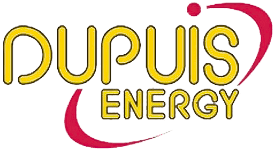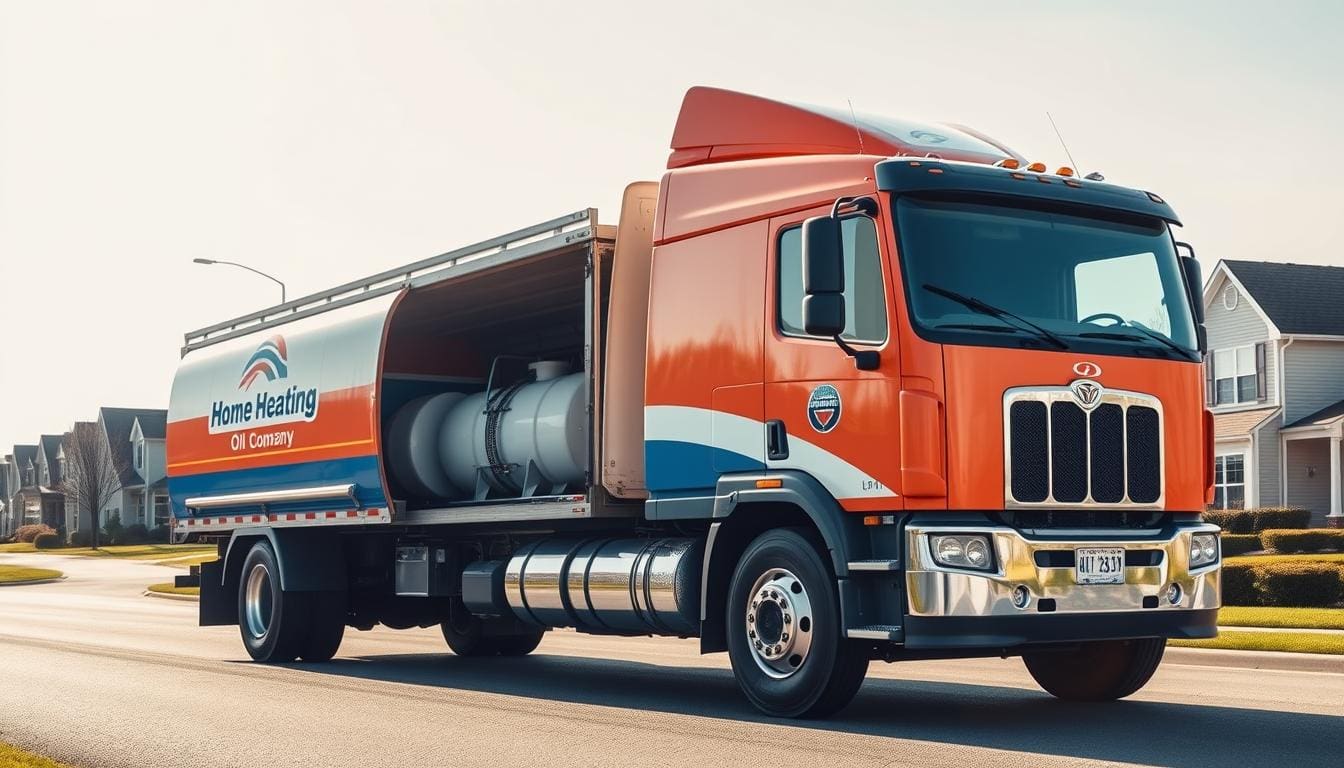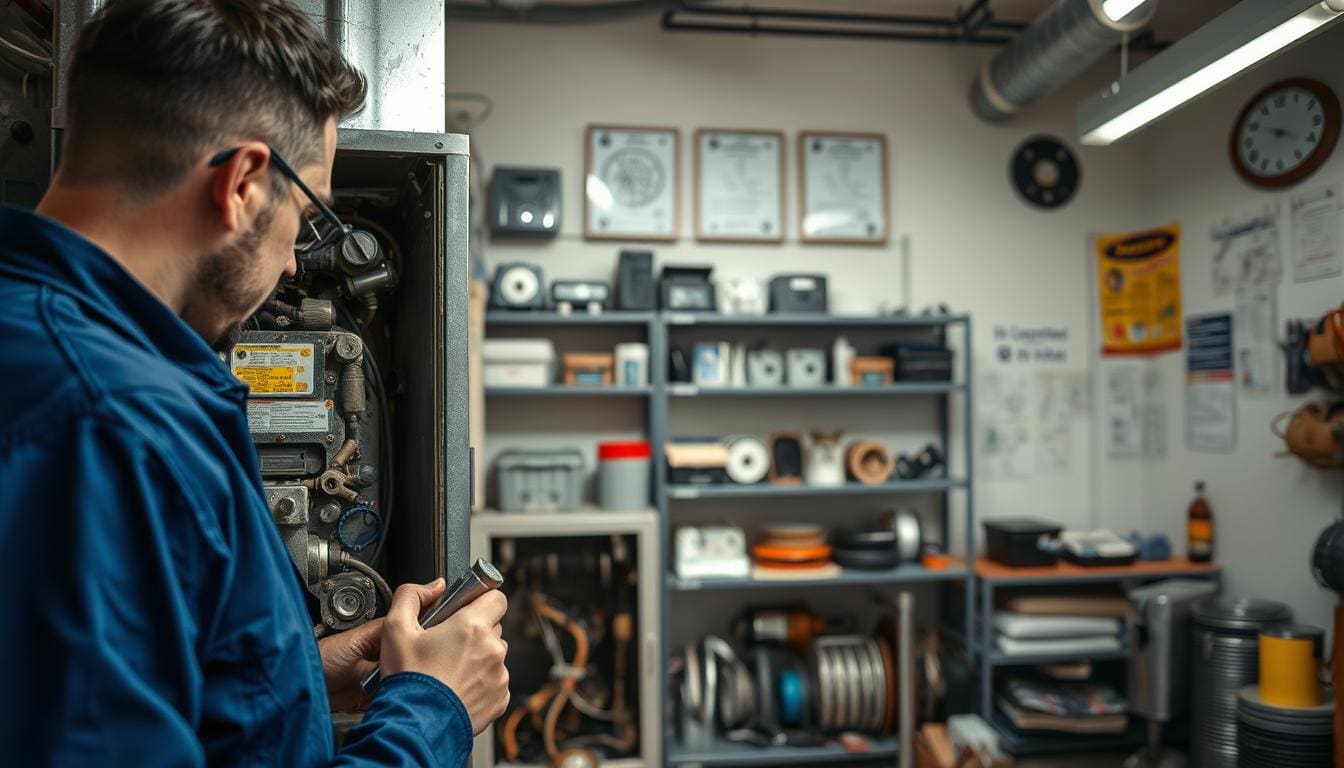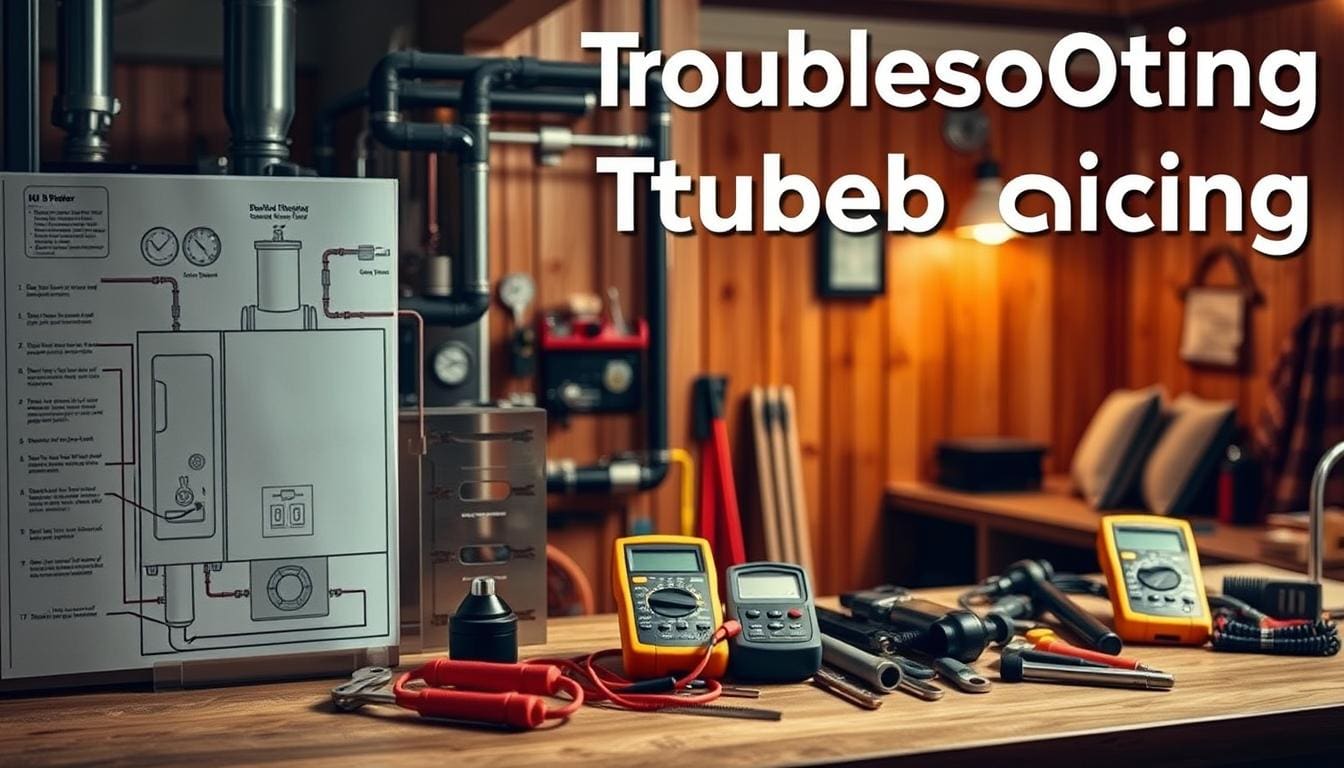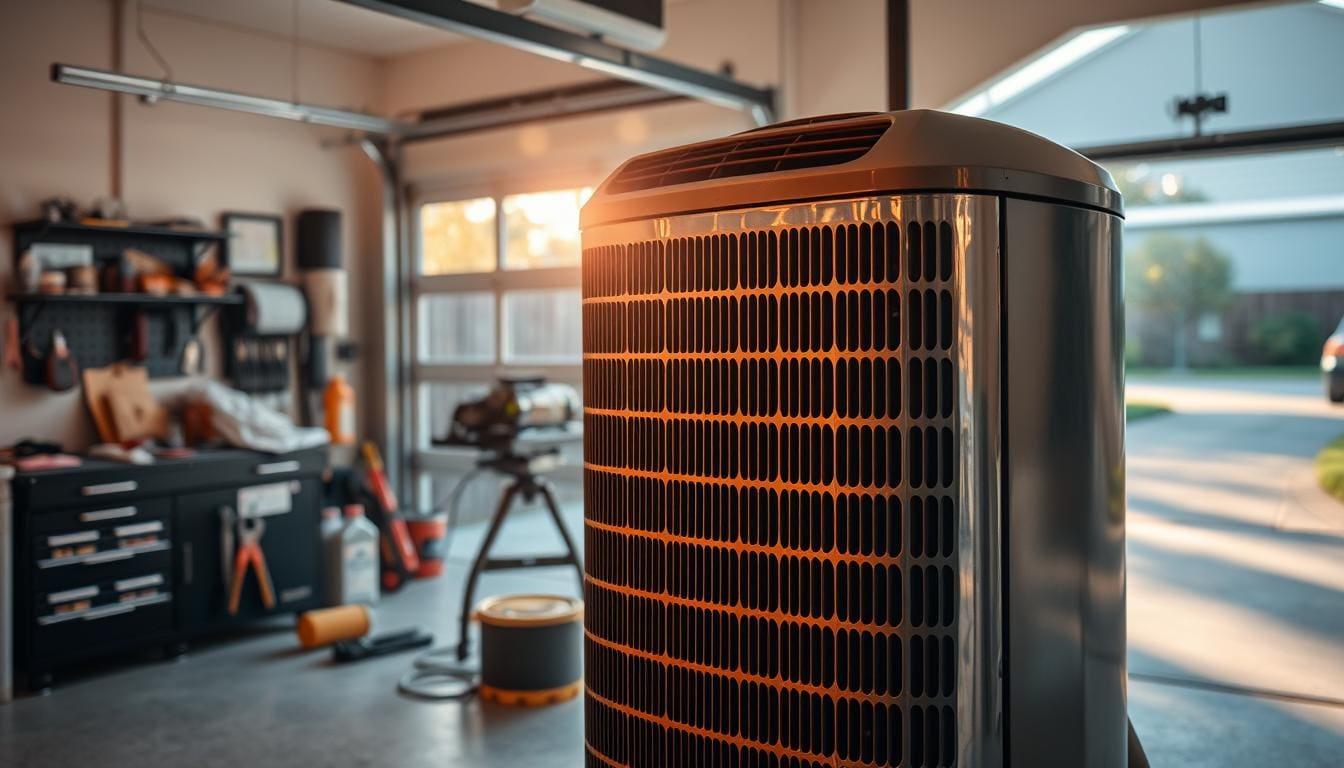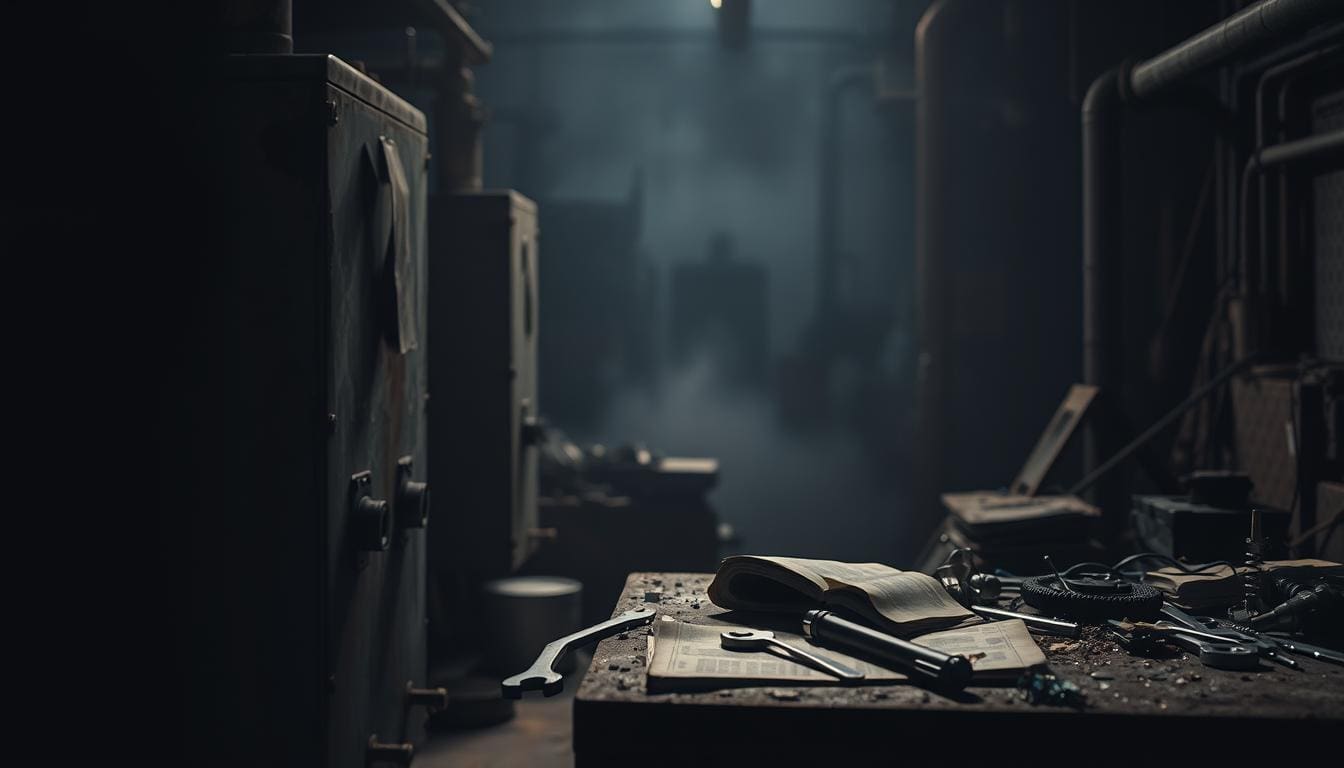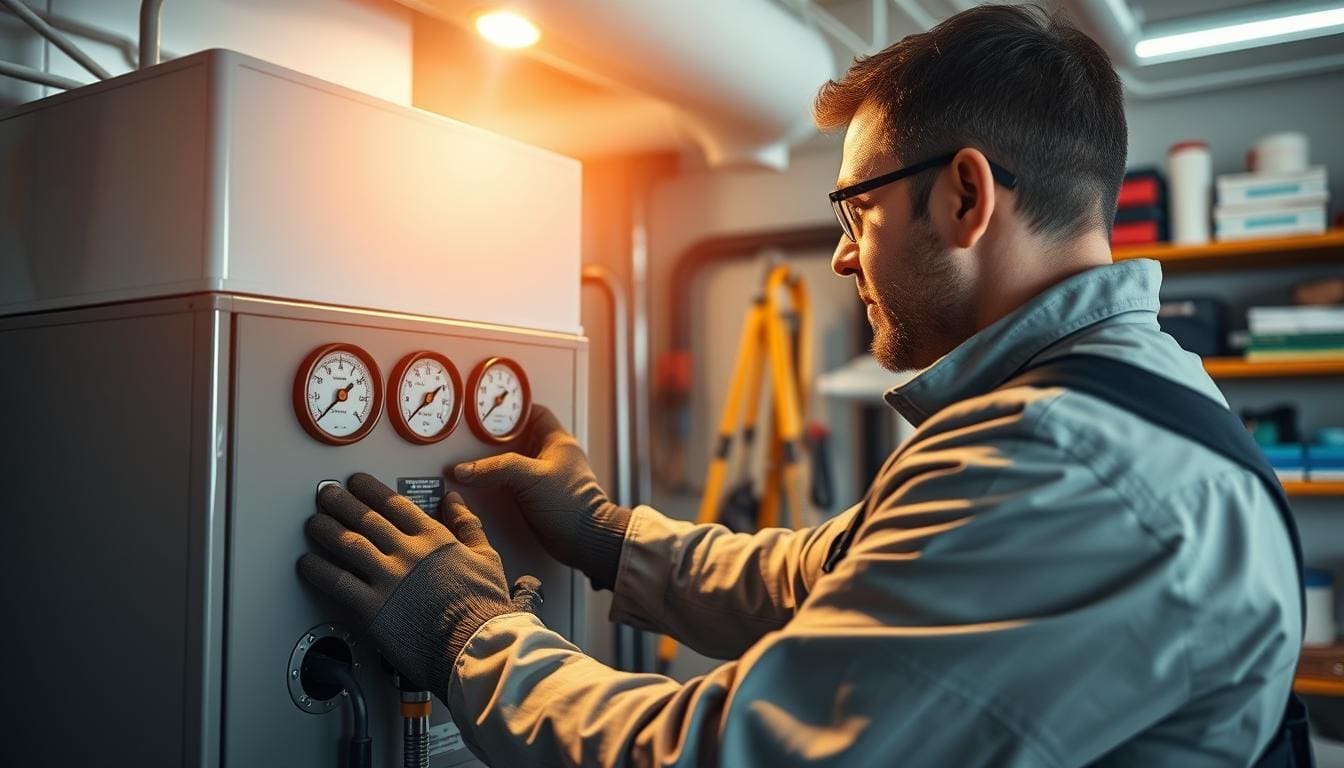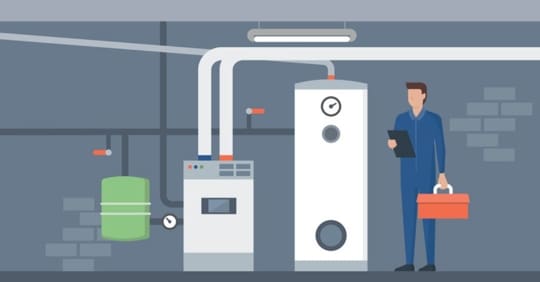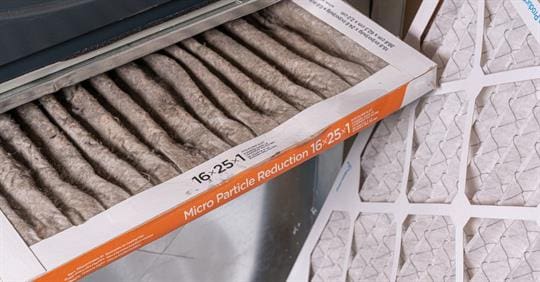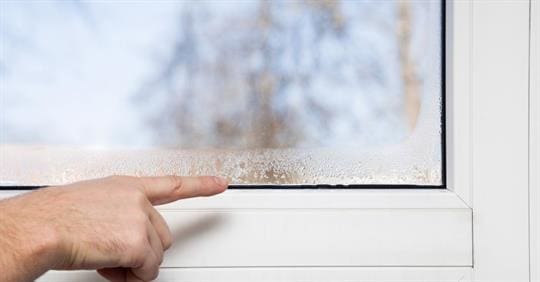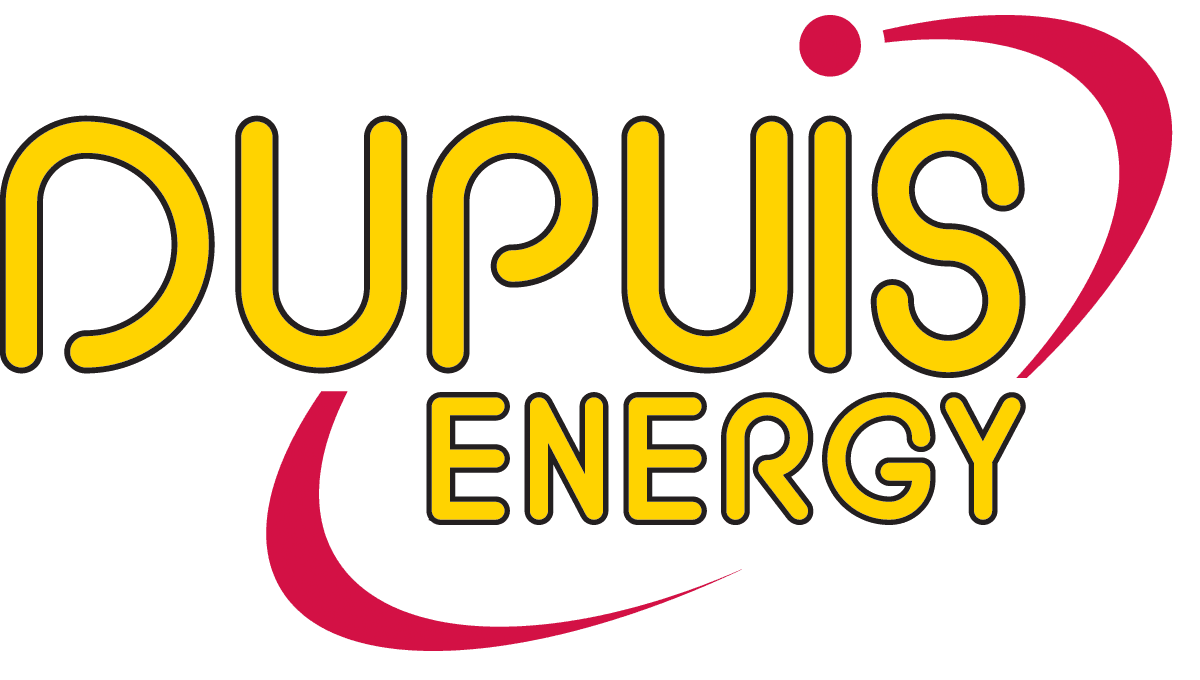Did you know that neglected heating and cooling equipment uses up to 30% more energy than well-maintained systems? This shocking statistic means you could be wasting thousands of dollars on energy bills. At Dupuis Energy, we’ve seen many Rhode Island homeowners unknowingly waste a lot of money by not getting their equipment checked regularly.
A well-maintained heating and cooling system can last 15-20 years. But if you neglect it, it might only last 7-10 years. This can cost you $5,000 to $10,000 more than you need to spend.
When looking for trusted hvac maintenance near me, finding reliable and skilled service is key. Our team has over 125 years of experience serving Rhode Island families. We’ve mastered the art of preventative care to keep your systems running smoothly all year.
Think of professional hvac system maintenance as health insurance for your home. Regular check-ups can save you from the financial shock of emergency repairs and high utility bills. Our customers have seen their energy costs drop by 20-25% after following our service schedule.
Key Takeaways
- Well-maintained HVAC systems use up to 30% less energy than neglected equipment
- Regular maintenance can extend system lifespan from 7-10 years to 15-20 years
- Preventative service helps avoid emergency repair costs that often exceed $500
- Professional maintenance improves indoor air quality and system reliability
- Dupuis Energy offers expert maintenance backed by 125+ years of experience
- Seasonal tune-ups optimize performance for changing New England weather conditions
The True Cost of Neglecting Your HVAC System
Ignoring your HVAC system is not just a hassle—it’s a big financial risk. Many homeowners think saving money by skipping maintenance is smart. But, this can lead to big expenses later on. It can hurt your comfort and wallet.
Your HVAC system works harder and uses more energy if it’s not well cared for. It also wears out faster. This can lead to big problems, like breakdowns, when you need it most.
Common Problems Caused by Poor Maintenance
Without regular checks, your HVAC system faces many issues. These problems don’t just make it work less well. They also damage parts and shorten its life.
- Clogged air filters make your system work harder and use up to 15% more energy. This can cause it to overheat and fail early.
- Dust on coils stops heat transfer, making your system up to 30% less efficient. This raises your energy bills.
- Refrigerant leaks can be slow to notice. They strain the compressor, which is very expensive to replace.
- Electrical problems cause failures and damage. They can even be dangerous, like causing fires.
- Drainage issues can damage your home, cause mold, and harm your air quality.
These small problems can quickly get worse if ignored. What starts as a small issue can lead to a complete system failure. This means you’ll have to pay for emergency repairs or even a new system.
Emergency Repair Expenses vs. Routine Maintenance Costs
Preventative maintenance is much cheaper than emergency repairs. Regular checks cost $150-$300 a year. This keeps your system running well all year.
Emergency repairs, on the other hand, cost a lot more. They often have extra fees, like $100-$200. Weekend or holiday repairs can be even pricier.
| Common Emergency Repairs | Average Cost | Preventable with Maintenance? |
|---|---|---|
| Compressor Replacement | $1,200-$2,800 | Often preventable |
| Blower Motor Failure | $450-$950 | Usually preventable |
| Circuit Board Replacement | $350-$650 | Sometimes preventable |
| Refrigerant Recharge | $200-$600 | Mostly preventable |
Emergency breakdowns cost more than just the repair. They can also lead to extra expenses. These include temporary housing, lost workdays, and water damage.
Regular maintenance saves a lot of money. A well-kept system avoids expensive repairs and runs more efficiently. This can cut your energy bills by 5-15%, says the U.S. Department of Energy.
Replacing a whole HVAC system costs $5,000-$12,000. Keeping your current system running longer through maintenance is very valuable. Regular checks by experts can catch problems early.
Preventative maintenance is a smart financial choice. Working with trusted local HVAC services protects your home, comfort, and finances for years.
Financial Benefits of Regular HVAC Upkeep
Seeing your HVAC system as a financial asset is smart. Regular maintenance is not just an expense. It brings measurable financial gains over time. Let’s see how today’s investment in your HVAC system leads to big savings tomorrow.
Reduced Energy Bills Through Optimized Performance
A well-maintained HVAC system uses less energy. This is because clean filters, coils, and ductwork make it work less hard. Your home stays comfortable without using too much energy.
Studies show regular maintenance boosts HVAC efficiency by 5-15%. For the average household spending $2,200 on energy, this means saving $110-$330 a year. This is more than the cost of keeping your HVAC system in top shape.
Professional HVAC technicians can make your system work like new. They do things like:
- Cleaning or replacing air filters
- Removing dust and debris from coils
- Checking refrigerant levels
- Lubricating moving parts to reduce friction
- Calibrating thermostats for optimal performance
These tasks help use less energy. For example, a clean filter can save up to 15% on energy. Proper refrigerant levels can cool your home 10-20% better.
Avoiding Costly Emergency Repairs
Emergency HVAC repairs are expensive and inconvenient. They happen when you least expect it, during peak seasons. This means high service rates.
An ounce of prevention is worth a pound of cure, when it comes to HVAC systems. Small issues caught during routine maintenance can prevent costly repairs later.
Regular checks by HVAC technicians can catch problems early. They might find:
- A worn belt that costs $20 to replace before it breaks and damages the motor ($500+)
- Low refrigerant indicating a small leak that can be repaired for $200 before it leads to compressor failure ($1,500+)
- Electrical connection issues that cost $150 to fix before they cause system failure or fire hazards
It’s clear: spending $150-$300 twice a year on maintenance is cheaper than one big repair. Big repairs can cost over $1,000.
| Maintenance Item | Preventative Cost | Emergency Repair Cost | Potential Savings |
|---|---|---|---|
| Dirty Coils | $100-150 | $500-800 | $400-650 |
| Refrigerant Issues | $200-300 | $1,500-2,000 | $1,300-1,700 |
| Electrical Components | $150-200 | $600-900 | $450-700 |
| Blower Motor | $75-125 | $400-600 | $325-475 |
Insurance and Warranty Considerations
Many homeowners don’t know regular maintenance affects their warranty and insurance. Most manufacturers require proof of maintenance to honor warranties.
Our diamond contractor status lets us offer extended 12-year warranties on Mitsubishi Electric equipment. But, these warranties need annual maintenance by qualified technicians. Skipping maintenance can void these protections, leaving you with big repair bills.
Some home insurance providers give discounts for homes with well-maintained HVAC systems. This is because well-maintained systems are less likely to cause fires or water damage. Discounts vary, but they’re usually 2-5% of your premium.
Considering warranty and insurance benefits, energy savings, and avoided repair costs, regular maintenance is a smart financial choice. It’s one of the best decisions you can make for your home.
How HVAC System Maintenance Near Me Protects Your Investment
Your HVAC system is a big investment in your home’s comfort and value. Finding the right local maintenance pros is key to keeping that investment safe. When you search for “HVAC system maintenance near me,” you’re looking for more than just convenience. You want experts who know the unique challenges your system faces in your area.
At Dupuis Energy, we’ve spent four generations learning about local climate conditions and how they affect home comfort systems. This knowledge lets us provide maintenance services that really protect your investment for the long term. We focus on long-term care, not just quick fixes.
Local Climate Considerations for HVAC Care
Every region has its own challenges for HVAC systems. What works in Arizona’s dry heat won’t work in Florida’s humid conditions or Minnesota’s cold. Local climate factors greatly affect how your system performs and what maintenance it needs.
Coastal areas face special challenges with salt air corrosion that can damage external components quickly. A local technician will know to check for corrosion and apply protective measures during maintenance visits.
In humid regions, controlling moisture is key. Excess humidity can lead to mold growth within your system, affecting both equipment longevity and your indoor air quality. Local HVAC pros understand the humidity challenges in your area and can take preventative steps during maintenance visits.
“Having someone who understands our local weather patterns has made all the difference. Our system runs more efficiently year-round because our technician knows exactly what to adjust for our specific climate conditions.”
Areas with extreme temperature swings need systems that can efficiently switch between heating and cooling. Local technicians are familiar with these demands. They ensure your system is properly set for seasonal changes specific to your region, preventing unnecessary strain on components.
Finding Qualified Local Technicians
Not all HVAC maintenance services are the same. When searching for the best HVAC maintenance companies in your area, consider several key factors:
- Verify proper licensing and insurance specific to your state requirements
- Check for certifications from recognized industry organizations like NATE (North American Technician Excellence)
- Look for companies with experience servicing your specific brand and model
- Read local reviews that mention long-term reliability, not just immediate fixes
- Ask about their familiarity with regional climate challenges
Companies with deep roots in your community often provide the most reliable service. They’ve built their reputation locally and understand the specific needs of homes in your area. This local knowledge is invaluable for preventative maintenance that truly protects your investment.
When evaluating potential maintenance providers, ask specific questions about their experience with systems like yours. How many similar units do they service? What common issues do they see in your neighborhood? Their answers will reveal their level of local expertise.
Established local companies also tend to have stronger relationships with suppliers, meaning they can often get parts more quickly when needed. This can be crucial during emergency situations or when specific components need replacement during routine maintenance.
| Maintenance Aspect | Generic Service | Local Expert Service |
|---|---|---|
| Climate Adaptation | Standard approach regardless of location | Customized for your specific regional challenges |
| System Knowledge | General understanding of common systems | Familiar with systems popular in your area |
| Preventative Focus | Standard checklist | Addresses known local issues before they occur |
| Response Time | Variable based on service area | Typically faster due to proximity |
Remember, the cheapest option rarely provides the best protection for your investment. Quality HVAC maintenance from local experts might cost slightly more upfront but saves substantially over time. It leads to better system performance, fewer repairs, and extended equipment life.
By choosing local pros who truly understand your region’s unique demands, you’re not just maintaining your system. You’re protecting a valuable investment in your home’s comfort and efficiency for years to come.
Extending Your System’s Lifespan Through Proper Care
Your HVAC system is a big investment in your home. Regular maintenance is key to making it last longer. Most people don’t realize how much care affects their heating and cooling equipment’s life. Working with top-rated HVAC maintenance specialists means more comfort and reliability for years.
As Mitsubishi Electric Elite Diamond Contractors, we’ve seen how maintenance boosts system performance and durability. Today’s HVAC systems are efficient, but only if maintained properly. We’ll look at how maintenance affects your system’s life and which parts need attention.
Average HVAC System Lifespans With and Without Maintenance
Well-maintained HVAC systems last 5-10 years longer than neglected ones. Expert HVAC care providers can add years to your equipment’s life, saving you thousands of dollars.
Different HVAC equipment responds differently to maintenance. Air conditioners last 10-15 years with care, but only 7-8 years without it. Furnaces can last 15-20 years with maintenance, but just 10-12 years without. Heat pumps, which work all year, need regular service to last 15 years.
| HVAC System Type | Average Lifespan Without Maintenance | Average Lifespan With Regular Maintenance | Potential Years Added | Replacement Cost Savings |
|---|---|---|---|---|
| Central Air Conditioner | 7-8 years | 15-20 years | 7-12 years | $4,000-$7,000 |
| Gas Furnace | 10-12 years | 18-25 years | 8-13 years | $3,500-$6,000 |
| Heat Pump | 8-10 years | 15-20 years | 5-10 years | $5,000-$8,000 |
| Ductless Mini-Split | 10-12 years | 20+ years | 8-10+ years | $3,000-$10,000 |
Regular maintenance extends your system’s life, saving you money. Replacing an HVAC system costs $5,000-$12,000. Annual maintenance costs $150-$300, delaying a big expense and improving performance.
Mitsubishi Electric systems, known for their durability and technology, benefit from professional maintenance. Their advanced features ensure years of trouble-free operation with proper care by qualified technicians.
Components Most Affected by Lack of Maintenance
Not all parts of your HVAC system wear out at the same rate. Certain parts are more prone to failure without maintenance. Knowing these parts helps explain why top-rated HVAC maintenance specialists focus on them.
The compressor is crucial for cooling systems. It circulates refrigerant and costs $1,000-$2,500 to replace. Regular maintenance keeps refrigerant levels right and coils clean, preventing the compressor from failing early.
Heat exchangers in furnaces transfer heat to your home’s air. Neglecting maintenance can lead to cracks, allowing carbon monoxide to leak. Replacement costs $1,500-$3,000, but safety risks are greater.
Motors power fans and blowers. Without lubrication and cleaning, they accumulate dust and fail. Replacing a motor costs $400-$850, not including labor.
Electronic control boards manage system functions and are sensitive to power issues and dust. These boards, common in Mitsubishi Electric systems, can fail without proper maintenance. Replacement costs $350-$700.
Evaporator and condenser coils transfer heat during cooling. Dirty or corroded coils reduce efficiency and strain other components. Professional cleaning during maintenance prevents these problems.
Regular maintenance saves money by preventing expensive replacements. It also protects your HVAC investment, which is a significant expense for many homeowners. Mitsubishi Electric’s technology offers valuable protection, ensuring their solutions solve common problems for years.
Improving Indoor Air Quality and Health Benefits
Many homeowners don’t know their HVAC system is like the lungs of their home. It affects the air everyone breathes. Regular maintenance brings big financial benefits and even bigger health advantages. With proper care, advanced ventilation systems greatly improve indoor air quality, making your home healthier for you and your family.
Spending about 90% of our time indoors makes the air quality in our homes very important. A well-kept HVAC system does more than just control temperature. It filters, cleans, and conditions the air we breathe every day.
How Clean HVAC Systems Affect Respiratory Health
Your HVAC system and your family’s respiratory health are closely linked. Without reliable HVAC system upkeep, systems can become breeding grounds for harmful contaminants. These can trigger or worsen respiratory conditions.
When HVAC systems are neglected, they collect dust, pollen, pet dander, and other allergens in their ductwork and components. Over time, mold and bacteria can grow, spreading through your home when the system runs. This means you and your family breathe in these contaminants.
For those with asthma, allergies, or other respiratory issues, this can be very serious. The Environmental Protection Agency says indoor air can be two to five times more polluted than outdoor air. Proper HVAC maintenance is crucial for public health.
The quality of air inside homes and buildings has been found to be a significant factor in the health and wellbeing of those who occupy them. Properly maintained HVAC systems are one of our first lines of defense against respiratory issues and allergic reactions.
Children and the elderly are most vulnerable to poor indoor air quality. Studies show cleaner air means fewer sick days and fewer respiratory infections for children. For seniors, it can mean fewer complications from conditions like COPD or heart disease.
Looking for trusted HVAC maintenance near me is more than just tuning up your equipment. It’s investing in your family’s health. Professional technicians focus on cleaning components that directly impact air quality, including:
- Air handlers and blower assemblies
- Evaporator and condenser coils
- Ductwork and vents
- Drain lines and pans
- Filtration systems
Allergen and Contaminant Reduction Through Maintenance
Regular maintenance greatly reduces allergens and contaminants in your home’s air. Professional cleaning of key components prevents harmful particles from building up and circulating. This can trigger allergic reactions and respiratory issues.
One key maintenance procedure is professional duct cleaning. Over time, ductwork can accumulate pounds of dust, hair, and debris. Removing these contaminants makes the air in your home much cleaner.
Coil sanitization is also crucial for air quality. The damp environment of cooling coils can breed mold and bacteria. Regular cleaning and sanitizing prevent these microorganisms from spreading throughout your home.
Filter replacement might seem simple, but it’s very effective for improving indoor air quality. High-quality filters can capture particles as small as 0.3 microns, including most allergens, bacteria, and viruses. We recommend checking filters monthly and replacing them at least quarterly.
| Maintenance Task | Air Quality Benefit | Health Impact | Recommended Frequency |
|---|---|---|---|
| Filter Replacement | Removes airborne particles | Reduces allergy symptoms | Every 1-3 months |
| Duct Cleaning | Eliminates accumulated debris | Decreases respiratory irritation | Every 3-5 years |
| Coil Cleaning | Prevents mold growth | Reduces asthma triggers | Annually |
| Drain Line Cleaning | Prevents bacterial growth | Reduces risk of respiratory infections | Bi-annually |
Proper humidity control is also important for indoor air quality. Systems that receive regular maintenance keep humidity levels between 30-50%. This range discourages dust mites, mold spores, and other biological contaminants from thriving in your home.
For families with pets, regular HVAC maintenance is even more crucial. Pet dander and hair can quickly clog filters and accumulate in ductwork. Professional cleaning removes these allergens, making the home more comfortable for everyone—especiallly visitors who might be sensitive to pet allergens.
Clean indoor air improves more than just physical health. It can lead to better sleep, increased energy, and improved mood. For those with chronic conditions, the benefits can be life-changing.
When searching for trusted HVAC maintenance near me, ask about their air quality improvement services. The best companies will offer comprehensive maintenance plans that address indoor air quality concerns, not just mechanical efficiency.
Investing in reliable HVAC system upkeep is a commitment to your family’s health. Clean air is essential for optimal health and wellbeing in your home.
Warning Signs Your HVAC System Needs Immediate Attention
Knowing the signs of HVAC trouble can save you from expensive repairs and make your home uncomfortable. Your heating and cooling system usually gives you hints before it fails. Learning to spot these signs can help avoid a costly replacement.
Let’s look at common warning signs that mean it’s time to call professional HVAC technicians nearby.
Unusual Noises and What They Indicate
Your HVAC system should be quiet. Strange sounds mean something’s wrong. Different noises point to different problems:
- Grinding or scraping: Often indicates metal-on-metal contact, possibly from a broken motor bearing or blower wheel problem
- Squealing or whistling: Usually signals belt issues or air pressure problems
- Banging or clanking: Suggests loose or broken parts inside the unit
- Rattling: May indicate loose panels, ductwork issues, or debris in the system
These sounds don’t fix themselves and get worse over time. If you hear unusual noises, turn off your system and call local HVAC maintenance services quickly to avoid more damage.
Performance Issues and Efficiency Decline
Your comfort level is a good sign of HVAC health. Problems that need immediate attention include:
- Uneven heating or cooling across different rooms
- System cycling on and off more frequently than normal
- Inability to reach or maintain set temperatures
- Longer run times without achieving desired comfort
- Weak airflow from vents
These symptoms often point to specific issues like refrigerant leaks, duct problems, thermostat malfunctions, or compressor issues. A qualified technician can find the exact cause and suggest the right fix before it’s too late.
Strange Odors and Their Potential Causes
Unusual smells from your HVAC system should never be ignored, as they can indicate serious problems:
- Burning or electrical smell: May indicate overheating components or electrical issues that could pose fire hazards
- Musty or moldy odors: Suggest moisture problems and possible mold growth in your system or ductwork
- Gas or sulfur smell (rotten egg odor): Could indicate a dangerous gas leak that requires immediate evacuation and emergency service
- Oil or smoke smell: Might point to oil leaks or combustion problems in heating systems
If you detect gas odors, leave your home immediately and call your gas company from a safe location. For other concerning smells, turn off your system and contact professional HVAC technicians nearby for quick inspection.
Rising Energy Bills as a Warning Signal
A sudden spike in your utility bills often signals that your HVAC system is working harder than it should. Even without noticeable performance changes, your system might be struggling due to:
- Clogged filters restricting airflow
- Refrigerant leaks forcing longer run times
- Duct leakage wasting conditioned air
- Component wear reducing overall efficiency
- Thermostat problems causing improper cycling
To track potential efficiency decline, keep a simple log of your monthly energy usage and costs. Compare current bills to the same month from previous years, accounting for any significant weather differences or rate changes. A consistent upward trend might indicate your system needs professional attention.
When you notice any of these warning signs, don’t wait for a complete breakdown to occur. Contacting local HVAC maintenance services at the first sign of trouble can often prevent minor issues from becoming major expenses. Remember that HVAC problems typically worsen over time—what starts as a strange noise or slight performance issue can quickly develop into a system-wide failure if left unaddressed.
At Dupuis Energy, our knowledgeable technicians are trained in the latest industry practices and technology to quickly diagnose and resolve these warning signs. Our friendly customer service representatives are ready to assist with any inquiries and schedule prompt service to keep your system running efficiently.
What Professional HVAC Maintenance Actually Includes
When you book service with the best HVAC maintenance companies, you’re getting a detailed process to boost your system’s performance. Many people wonder if professional maintenance is worth it, given the DIY videos online. As diamond contractors with specialized training, we assure you that professional maintenance offers value beyond what you see.
Professional HVAC service is more than just fixing problems. It’s a detailed approach to prevent issues before they happen. Let’s explore what happens during these crucial service visits.
Seasonal Inspection Checklist
Every season puts different demands on your HVAC system. That’s why technicians follow a detailed inspection process for each season. They check every important part of your system with special tools and methods.
A thorough seasonal inspection includes:
- Refrigerant level measurement and leak detection
- Electrical connection tightening and condition assessment
- Thermostat calibration and programming verification
- Ductwork examination for leaks, obstructions, and insulation integrity
- Safety control testing to ensure proper shutdown procedures
- Blower motor inspection and lubrication
- Heat exchanger inspection for cracks or corrosion
Each check has a specific purpose to prevent system failures. For example, low refrigerant levels might indicate a leak. If not fixed, it could lead to compressor failure, costing thousands of dollars. Loose electrical connections can also cause damage or fire hazards.
Cleaning Procedures and Their Importance
Dirt is your HVAC system’s worst enemy. Even with regular filter changes, dust and debris build up. Affordable HVAC system servicing includes thorough cleaning that boosts efficiency, air quality, and system life.
Professional cleaning focuses on these key areas:
- Evaporator and condenser coil cleaning to remove efficiency-robbing buildup
- Blower wheel and housing cleaning to maintain proper airflow
- Condensate drain line flushing to prevent water damage and mold growth
- Burner cleaning and adjustment for proper combustion
- Air filter replacement or cleaning
These cleanings are more detailed than just wiping surfaces. Coil cleaning, for example, requires special solutions and equipment to remove dirt without damaging fins. Regular cleanings can improve efficiency by up to 30% and prevent 85% of system failures.
Component Testing and Calibration
Your HVAC system operates based on precise measurements and specifications. Professional maintenance includes testing and calibrating components to ensure they meet manufacturer guidelines. This technical aspect requires specialized tools and knowledge that DIY approaches can’t match.
Key testing and calibration procedures include:
- Airflow measurement across the evaporator coil
- Refrigerant pressure testing to verify proper charge
- Electrical current draw analysis for motors and compressors
- Combustion efficiency testing for furnaces
- Temperature differential measurements across components
- Control board and safety switch verification
These precise measurements ensure your system operates exactly as designed. For example, a system with just 10% less refrigerant than specified can operate at 20% lower efficiency. This dramatically increases your energy bills while reducing comfort and system lifespan.
| Maintenance Task | Professional Service | DIY Attempt | Impact on System |
|---|---|---|---|
| Coil Cleaning | Complete cleaning with specialized equipment and solutions | Surface cleaning only, potential fin damage | Up to 30% efficiency improvement when done professionally |
| Refrigerant Check | Precise measurement and adjustment if needed | Not possible without specialized equipment | Proper levels prevent compressor failure ($1,500-$2,500 repair) |
| Electrical Testing | Comprehensive voltage and amperage testing | Visual inspection only | Prevents electrical component failures and safety hazards |
| System Calibration | Precise adjustments to manufacturer specifications | Not possible without technical knowledge | Ensures optimal efficiency and performance |
While the best HVAC maintenance companies charge for their expertise, the value received far exceeds the cost. Consider that the average emergency repair costs between $300-$1,500, while a typical maintenance visit costs $80-$150. More importantly, systems that receive regular professional maintenance last 5-10 years longer than neglected systems—representing thousands in delayed replacement costs.
When evaluating affordable HVAC system servicing options, remember that true affordability comes not just from the initial price but from the long-term savings. Professional maintenance prevents breakdowns, extends equipment life, and maintains efficiency. The thoroughness of professional maintenance simply cannot be replicated through DIY efforts, regardless of how handy you might be.
DIY HVAC Maintenance Tasks Between Professional Services
Between professional HVAC visits, homeowners can do simple yet effective maintenance. These tasks can greatly improve your system’s efficiency and lifespan. Here are the key DIY tasks that work well with expert HVAC care providers.
Monthly Filter Checks and Replacements
Keeping your air filters clean is crucial for reliable HVAC system upkeep. A clean filter ensures good airflow, reduces system strain, and improves air quality.
Choose filters based on your needs. Fiberglass filters are cheap but catch only big particles. For better air, consider pleated filters with higher MERV ratings (8-12).
To replace filters, turn off your system first. Look for the airflow arrow on the filter frame. It should point toward the furnace. Mark your calendar for monthly checks, but replace filters more often if you have pets or allergies.
This easy task can cut energy use by 5-15% and prevent system failures. Keep the right size filters ready to make maintenance easier.
Keeping Outdoor Units Clear and Clean
Your outdoor condenser unit needs space to work well. Keeping it clear is key for efficient operation and avoiding system strain.
Ensure at least 2 feet of space around the unit. Trim shrubs, remove debris, and clear leaves and grass clippings. Check more often in fall as leaves pile up.
For cleaning, turn off power at the disconnect box or breaker panel. Use a garden hose to spray from the inside out. Avoid pressure washers to protect the fins.
In winter, clear snow from the unit’s top and sides. Never use sharp tools that could damage it. Regular cleaning keeps your system working efficiently.
Thermostat Testing and Programming
Your thermostat controls your HVAC system. Checking its accuracy and setting it right can save energy and keep you comfortable.
To test it, tape a thermometer next to your thermostat. After 15 minutes, compare readings. If they’re off by more than a degree, your thermostat might need adjusting or replacing.
Smart thermostat programming can save 10-15% on energy costs. In cooling season, set it higher when you’re away or sleeping. In heating season, set it lower during those times. Adjust by 7-10 degrees for 8 hours or more.
Here’s a basic schedule for weekdays:
- Morning (wake): Comfortable temperature as you prepare for the day
- Daytime (away): Energy-saving setback while the house is empty
- Evening (return): Return to comfort settings when you arrive home
- Night (sleep): Energy-saving setback while you sleep
If you have a smart thermostat, use its learning and remote access features to save more energy.
While DIY tasks are helpful, they’re not a full replacement for professional service. Regular maintenance and visits from expert HVAC care providers are the best way to keep your system running well and save money.
By caring for your system, you’ll save money and understand how it works. This helps you catch problems early, avoiding costly repairs.
Seasonal Maintenance Guide for Peak Performance
Your HVAC system faces different challenges throughout the year. A seasonal maintenance strategy is key for optimal performance. Just as you wouldn’t wear a winter coat in summer, your heating and cooling system needs different care as seasons change. By following a structured maintenance calendar, you can prevent unexpected breakdowns, maximize efficiency, and extend your system’s lifespan.
Working with top-rated HVAC maintenance specialists at specific times of the year ensures your system is always ready for the demands of the upcoming season. Let’s explore how to keep your HVAC system running smoothly year-round.
Spring Preparation for Summer Cooling
Spring is the perfect time to prepare your air conditioning system for the hot months ahead. Scheduling maintenance in April or May, before the summer rush, gives you priority service and ensures your system is ready when temperatures soar.
“The biggest mistake homeowners make is waiting until the first heatwave to check their cooling system. By then, technicians are swamped with emergency calls, and you could wait days for service in uncomfortable conditions.”
When preparing your cooling system for summer, focus on these critical tasks:
- Schedule professional maintenance 4-6 weeks before you typically turn on your AC
- Clean or replace air filters to improve airflow and efficiency
- Clear debris from around outdoor condensing units
- Check refrigerant levels and inspect for leaks
- Clean evaporator and condenser coils to maximize heat transfer
For dual-purpose systems, the transition from heating to cooling mode requires special attention. Have a professional check dampers, reversing valves, and control systems to ensure smooth operation. This is also the ideal time to calibrate your thermostat for cooling season settings.
Fall Preparation for Winter Heating
As summer fades into fall, your focus should shift to preparing your heating system for winter. October is typically the best month for winter prep, giving you plenty of time before the first cold snap arrives.
Safety becomes a top priority when preparing combustion heating systems. Carbon monoxide leaks from damaged heat exchangers or flue pipes can be deadly. This is why having trusted HVAC maintenance near me professionals perform thorough safety inspections is crucial.
Your fall maintenance checklist should include:
- Professional inspection of heat exchangers, burners, and ignition systems
- Checking and cleaning blower components
- Testing safety controls and limit switches
- Inspecting fuel lines and connections
- Verifying proper thermostat operation in heating mode
For homes with oil or propane heating, fall is also the time to check fuel delivery systems and schedule tank fills. Establishing a relationship with reliable fuel suppliers ensures timely deliveries during cold months when demand peaks.
| Heating System Type | Critical Fall Maintenance | Professional vs. DIY |
|---|---|---|
| Gas Furnace | Heat exchanger inspection, burner cleaning, gas pressure check | Professional required for safety |
| Oil Furnace | Nozzle cleaning, filter replacement, combustion efficiency test | Professional required for efficiency |
| Heat Pump | Defrost cycle check, refrigerant level, reversing valve test | Professional recommended |
| Electric Furnace | Heating element inspection, sequence testing, airflow check | Some DIY possible, professional preferred |
Year-Round Maintenance Tasks
While seasonal maintenance addresses specific needs, some HVAC care is necessary regardless of the time of year. These consistent habits form the foundation of a well-maintained system.
Monthly filter checks top the list of year-round maintenance tasks. Clean filters improve air quality, reduce energy consumption, and prevent system strain. Set calendar reminders to check filters on the same day each month.
Other important year-round maintenance includes:
- Keeping return air vents and registers clear of furniture and obstructions
- Monitoring unusual sounds, odors, or performance changes
- Maintaining proper humidity levels (30-50%) throughout your home
- Checking condensate drain lines for clogs or leaks
- Ensuring outdoor units remain clear of debris, vegetation, and snow
Smart thermostats can help with year-round maintenance by alerting you to potential issues. Many models track runtime hours and can notify you when filter changes are due or when performance metrics indicate a potential problem.
Creating a maintenance calendar is an effective way to stay on track. We recommend this simple schedule:
| Season | Professional Service | DIY Tasks | Timing |
|---|---|---|---|
| Spring | AC tune-up and cleaning | Clear outdoor unit, change filters | April-May |
| Summer | None (unless problems arise) | Monthly filter checks, keep outdoor unit clear | June-August |
| Fall | Heating system inspection | Clean vents, check humidifier | September-October |
| Winter | None (unless problems arise) | Monthly filter checks, monitor performance | November-March |
By following this seasonal approach and working with top-rated HVAC maintenance specialists, you’ll maximize system performance while minimizing energy costs. Remember that finding trusted HVAC maintenance near me providers before you need emergency service is always the wisest approach.
Consistent maintenance throughout the changing seasons not only saves money but also provides peace of mind. You’ll rest easier knowing your system is prepared for whatever weather challenges lie ahead.
Conclusion: Investing in HVAC Maintenance for Long-Term Savings
Regular HVAC care is a smart financial move for homeowners. We’ve explored how it prevents costly breakdowns and extends system life. This guide has shown the benefits of a small investment in maintenance.
Spending on HVAC maintenance saves thousands in emergency repairs and replacement costs. A well-maintained system also cuts your monthly energy bills by 15-20%. This alone can pay back your maintenance costs in months.
There are more benefits than just saving money. Clean, working systems improve indoor air quality. This can lower medical costs for respiratory issues. They also keep your home at a comfortable temperature, protecting your wood floors, furniture, and electronics.
Finding the best HVAC maintenance companies requires some research. But the benefits are worth it. Look for providers with comprehensive service packages that check both heating and cooling systems. Many offer maintenance plans with priority scheduling and discounted repairs.
We suggest scheduling HVAC service twice a year. Once before summer and once before winter. This ensures your system is ready when you need it most. Most service visits take just 1-2 hours but offer months of reliable performance.
Today’s small investment in maintenance prevents tomorrow’s big expenses. By working with qualified technicians for regular care, you’re not just maintaining equipment. You’re protecting your comfort, health, and financial well-being for years to come.
FAQ
How often should I schedule professional HVAC maintenance?
What’s the average cost of professional HVAC maintenance?
Can I perform HVAC maintenance myself instead of hiring professionals?
How much money can regular HVAC maintenance actually save me?
What are the most common HVAC problems caused by neglected maintenance?
How do I find reliable HVAC maintenance services near me?
What warning signs indicate my HVAC system needs immediate professional attention?
Does HVAC maintenance really improve indoor air quality?
Will regular maintenance really extend my HVAC system’s lifespan?
What should be included in a professional HVAC maintenance visit?
Are HVAC maintenance agreements worth the cost?
How does local climate affect my HVAC maintenance needs?
Call Dupuis Energy now at (401) 262-8006 or send us a message online.

